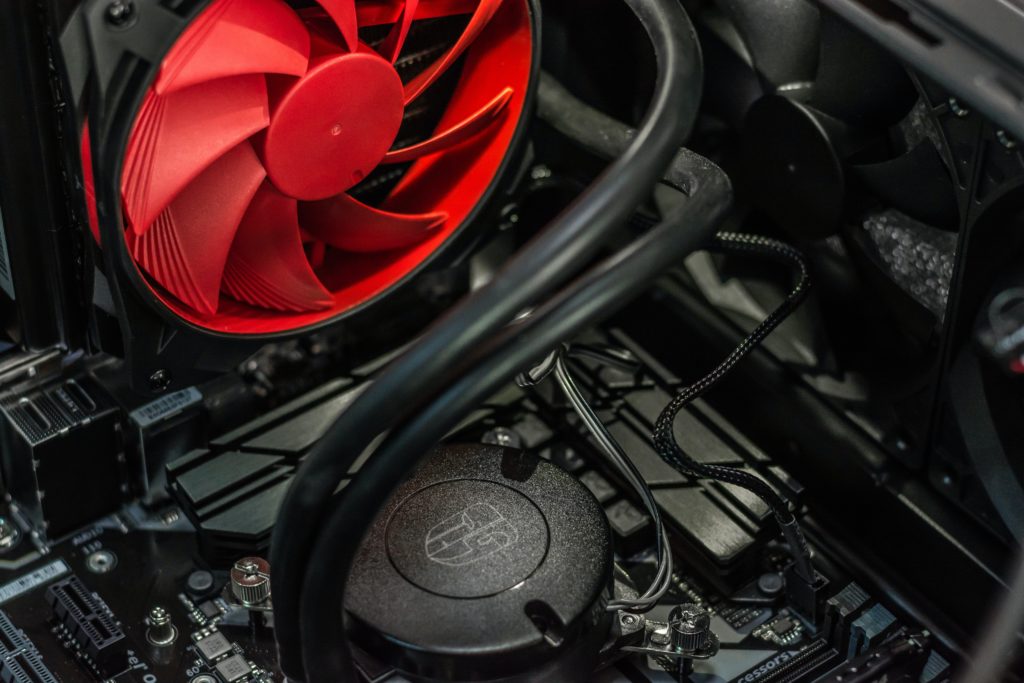Are you fed up with the incessant noise from your PC’s fans and hard drives? Noisy computers can be not just distracting but also extremely irritating when you’re trying to focus or relax. However, you can take several steps to reduce the noise generated by your PC without compromising its performance.
In this guide, we’ll explore practical tips and tricks to help you create a quieter computing environment. The professional repair technicians at iFixYouri can help with any PC upgrades or repairs.
Keep Your PC Clean
Dust and dirt accumulation inside your PC can force fans to work harder, resulting in increased noise. To combat this issue, routinely clean the internals of your PC. Turn off your computer, unplug it, and open the case.
Use compressed air to gently blow away dust and debris from components like the CPU cooler, GPU, and fans. Ensure that the power supply unit (PSU) fan remains clean as well. A clean PC will run cooler and quieter.
Upgrade or Replace Fans

Fans inside your computer case represent one of the primary sources of noise. If you have outdated or low-quality fans, consider swapping them out for quieter alternatives. Seek fans with higher airflow-to-noise ratios and those designed for silent operation. Renowned brands such as Noctua and Be Quiet! offer excellent options for quieter fans.
Furthermore, contemplate investing in larger fans, which can move the same amount of air at lower RPMs, resulting in reduced noise levels. Remember to check compatibility with your case, as larger fans may not fit all cases.
Enhance Acoustic Dampening
While many cases come equipped with acoustic-dampening materials, you can further reduce noise by adding more. These materials, often composed of foam or rubber, effectively absorb sound vibrations and minimize noise levels. Attach them to the inner panels of your case or around noisy components like hard drives.
Transition to Solid-State Drives (SSDs)
Traditional hard disk drives (HDDs) can generate noise due to their spinning disks and moving parts. Replacing your HDD with an SSD not only boosts your computer’s speed but also eliminates the noise linked to spinning disks. SSDs have become more cost-effective and come in various storage capacities, making them a valuable investment for noise reduction.
Customize Fan Speeds and Profiles
Most modern motherboards include software that empowers you to adjust fan speeds and profiles. By configuring your fans to operate at lower speeds during idle periods and increase speed as needed, you can strike a balance between cooling and noise reduction. Experiment with different settings until you discover the optimal balance for your PC.
Utilize a Quiet CPU Cooler
Stock CPU coolers included with processors can produce noise when subjected to heavy loads. Consider investing in an aftermarket CPU cooler specifically designed for quiet operation. Brands like Noctua and Be Quiet! offer excellent choices that can substantially diminish CPU fan noise.
Mindful PC Placement
The positioning of your PC can also influence its noise level. Avoid placing it on a carpeted floor, as this can obstruct airflow and force fans to work harder. Instead, position your PC on a hard, stable surface with ample room for airflow. Additionally, make certain that the case vents remain unobstructed.
A noisy PC doesn’t have to disrupt your productivity or leisure time. With a few straightforward steps and some thoughtful upgrades, you can significantly reduce the noise generated by your computer.
From cleaning your PC to upgrading fans, and using acoustic-dampening materials, these tips will help you achieve a quieter and more serene computing experience. So, silence those irritating fan noises and embrace a quieter PC! You may also want to check out our post about Simple Computer Tweaks to Enhance Your Speed and Performance.
